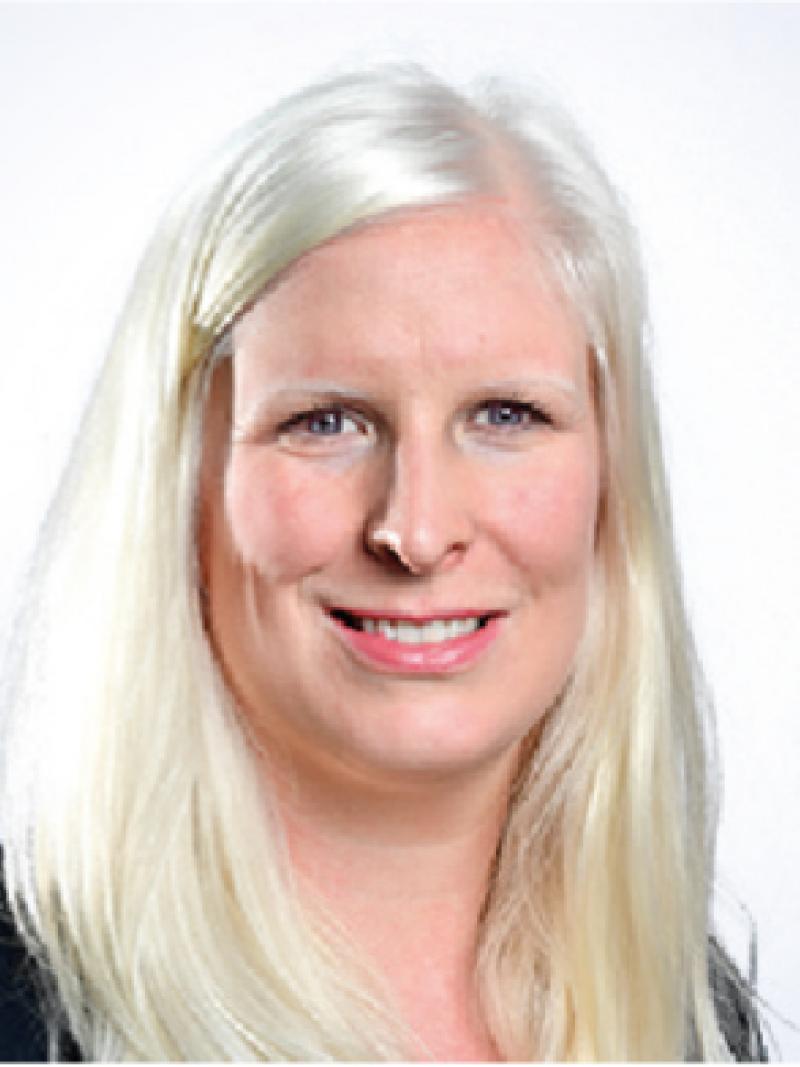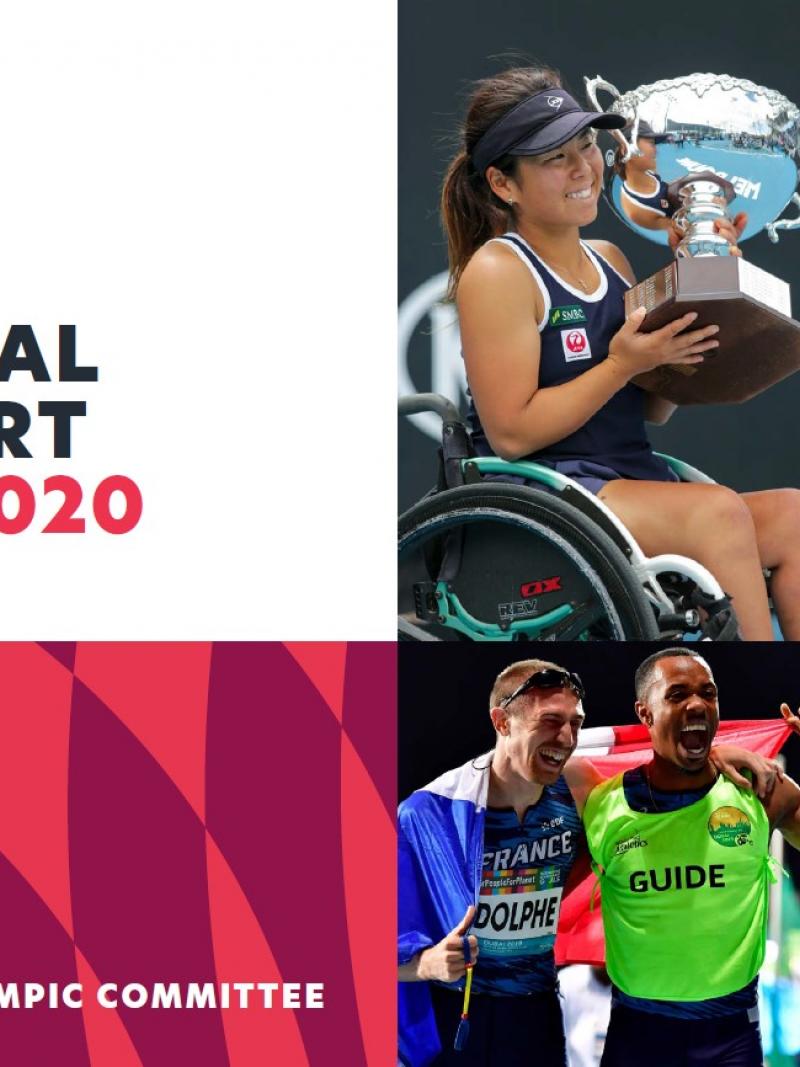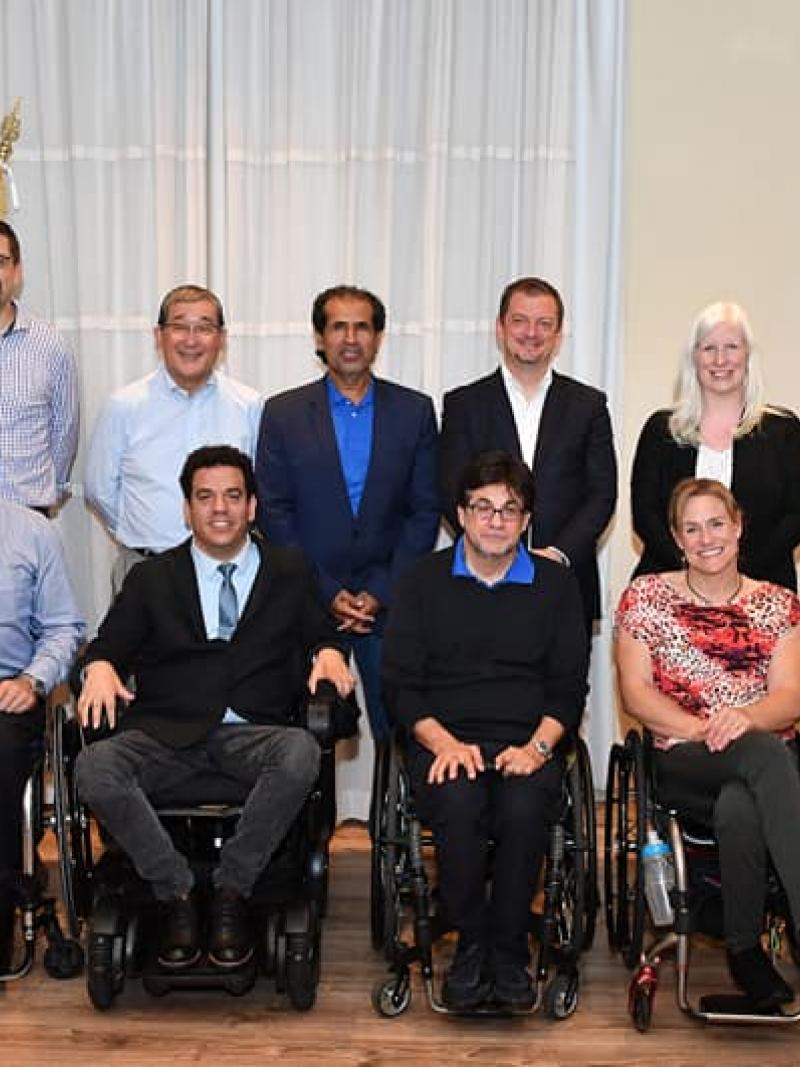Paralympic moments that mattered in 2020
A look back at a challenging year that forced the world to adapt and make the most of the situation 31 Dec 2020The year started with high hopes and anticipation for the Tokyo 2020 Paralympics. While the COVID-19 pandemic that took hold since March turned the entire world’s expectations upside down, the Paralympic Movement saw glimmers of light during a dark year:
FINDING A NEW CALLING
The pandemic showed a different side of many Para athletes, who felt compelled to flex their medical backgrounds in the health crisis.
US Paralympic snowboard medallist Brittani Coury and two-time British Paralympic table tennis player Kim Daybell went to the frontlines to battle the coronavirus. Coury, a registered nurse in Utah, turned her attention to helping at a university hospital. Daybell was due to start training full-time for Tokyo the week of 23 March but instead found himself full-time at the hospital on the frontline of the National Health Service's (NHS). Spanish Para triathlete Susana Rodriguez Gacio, Dutch rower Annika van der Meer, Venezuelan swimmer Genesis Leal, Italian rower Greta Muti, retired wheelchair fencer Matt Campbell-Hill, and Colombian swimmer Paola Mosquera all answered to the call of serving during the pandemic.
PARALYMPICS ON NETFLIX
The Paralympic Movement went mainstream with the ground-breaking Netflix premier of ‘Rising Phoenix’ in August. The film’s release was planned to coincide with Tokyo 2020. Even if plans changed, it still fit perfectly with one-year celebrations leading up to the postponed Games in 2021, and it received rave reviews.
The film tells the extraordinary story of the Paralympic Games through the profiles of nine Paralympians: Bebe Vio (Italy), Ellie Cole (Australia), Jean-Baptiste Alaize (France), Matt Stutzman (USA), Jonnie Peacock (UK), Cui Zhe (China), Ryley Batt (Australia), Ntando Mahlangu (South Africa) and Tatyana McFadden (USA).
SPEAKING UP ON GLOBAL ISSUES
From Black Lives Matter to LGBTQIA+, Para athletes mustered the courage to let their voices be heard on human rights issues around the world.
US wheelchair basketball player Brian Bell wrote to the Paralympic community about being a Black man with a disability and what can be done to end racism and discrimination. Brazilian swimmer Edina Garcia opened up about her experience of trying to stay true to herself and why she feels compelled to stand up for her rights. Athletes also forced Hollywood to reconsider how they are displaying disability, as seen in the #NotAWitch campaign that called out Warner Bros ‘The Witches’ movie.
REASONS TO BE EXCITED
The postponement of the Tokyo 2020 Paralympics to 2021 was tough news to swallow for many. But at the same time, there was a general agreement that it was the right decision, as sports were to take a backseat with the world undergoing a global health crisis.
That allowed energies to focus on making the Paralympics in 2021 even better, and the International Paralympic Committee’s (IPC) #WaitForTheGreats campaign that took off in August generated excitement. Maximising all digital platforms to bring the athletes to fans, the campaign was recognised by the prestigious communications and PR European Excellence Awards 2020.
FOCUS ON GAMES DELIEVERY
Determined to learn, adapt and remain flexible in what would be a challenging task of organising an international multi-sport event, the IPC, organisers, government officials and all responsible stakeholders rolled up their sleeves and got to work.
Test Events for Tokyo 2020 were laid out, venue updates were decided and much more had been done to deliver a safe a secure Tokyo 2020 Paralympic Games.
Future Games including the Beijing 2022 Paralympic Winter Games and Paris 2024 were also shaping up amid the challenges in the sports world. Beijing 2022 announced adapted Test Events, while Paris 2024 unveiled a new sustainable master venue plan and also initiated a call to get Paralympic sports into the emoji dictionary.
ENGAGING THE YOUTH
Several initiatives were taken to keep the future generation active and involved in creating for a more accessible and inclusive future.
The IPC teamed up with the International Olympic Committee, Special Olympics and other international federations for the World Virtual Youth Festival 2020, led by United Through Sports. The IPC challenged youths under 18 to send a message to world leaders on creating a more inclusive world and also devise their own personal exercises. Winners for under 18 and under 12 were announced, with 7-year-old Harmonie Rose-Allen capturing hearts.
Additionally, the IPC’s global education programme I’mPOSSIBLE celebrated three years since its launch with a rebrand and put forth a strong call to action to Learn. Engage. Include.
INCLUSION IN AFRICA
A EUR 2.1 million collaborative project between the IPC, Loughborough University, and the University of Malawi, Chancellor College is aiming to overcome stigma and discrimination against persons with disabilities in Africa through a project called Para Sport Against Stigma. And it has already gained traction, starting at the education level and also in the airwaves with the announcement of free-to-air broadcast of Tokyo 2020 in Sub-Saharan Africa.
SPORTS ACTUALLY IN ACTION
While many athletes found creative ways to train and stay fit in unprecedented times, other athletes were able to see competition, even before the pandemic took hold. Track cycling and wheelchair curling squeezed in World Championships, while wheelchair tennis was able to hold three Grand Slams this year. And the snow sports – alpine skiing, Nordic skiing and snowboard – managed to crown World Cup winners for the 2019-2020 seasons.
A COOPERATION TO GO A LONG WAY
On a mission to drive inclusion through Para sports, the IPC sealed a major agreement that is expected to help get the journey going faster.
Fittingly on the International Day of Persons with Disabilities (3 December), the IPC and the Office of the UN High Commissioner for Human Rights (UN Human Rights) signed a landmark cooperation agreement to collaborate on several initiatives that will further the rights of persons with disabilities. The two organisations will work together with several other like-minded organisations to deliver a global communications campaign around next year’s Tokyo 2020 Paralympic Games that aims to change global attitudes towards disability and further the human rights agenda.
REMEMBERING THE STRONGEST PARALYMPIAN
The Paralympic Family had a sombre moment this year with the passing of Iran’s two-time Paralympic champion powerlifter Siamand Rahman in March. Rahman took his first Paralympic title at London 2012 breaking his own world record. He then broke the world record nine times in three years from 2014-2016. Rio 2016 was a significant moment in Paralympic history when he became the first Paralympian to lift more than 300 kg. The remarkable 310 kg-lift which gave Rahman his second Paralympic gold still stands as the world record in the men’s over 107 kg category.














